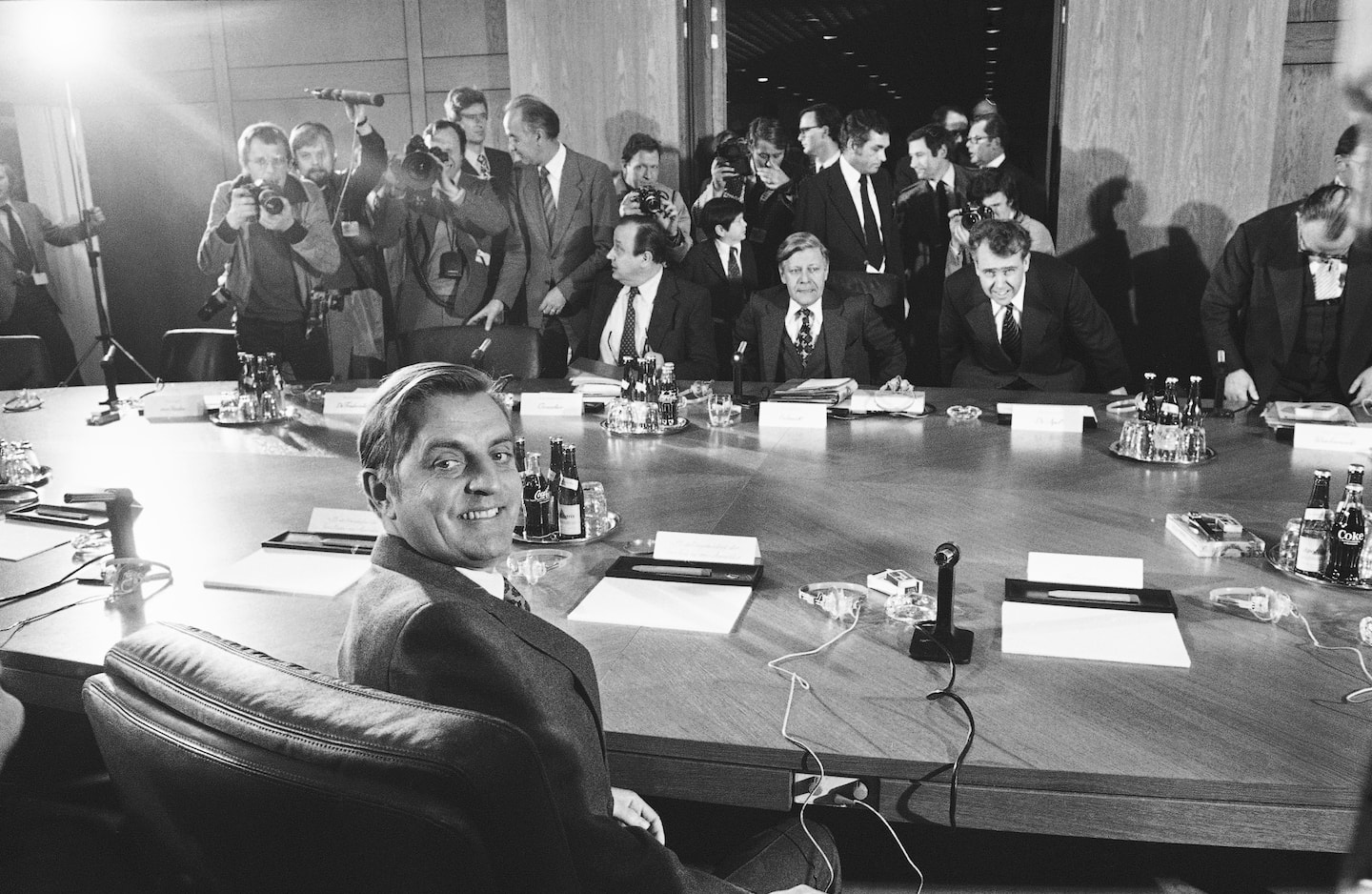Walter Mondale reinvented the vice presidency. Both Biden and Harris should thank him for it.

Before Mondale, the vice president was largely a figurehead.
When Dwight D. Eisenhower was asked to name a meaningful contribution Richard M. Nixon had made to his administration, he said — jokingly, he would later contend — that “if you give me a week, I might think of one.” During John F. Kennedy’s time in office, his vice president, Lyndon B. Johnson, bristled under the slights and contempt he felt from Kennedy’s Ivy League circle. After Kennedy’s 1963 assassination, Johnson himself went without a vice president for nearly 14 months.
But Jimmy Carter, coming to Washington in 1977 with a contingent of fellow Georgians and no real sense of how the place operated, had recognized that he needed a true governing partner with the experience Mondale had honed in 12 years as a well-regarded senator from Minnesota.
Mondale was the first vice president to have an office in the West Wing, steps from the president’s own, rather than being sidelined in the Old Executive Office Building, and a weekly lunch scheduled with the president. Carter also made it clear that their two staffs were to be considered one; Mondale’s chief of staff Richard Moe was given the additional title “assistant to the president.”
“We felt that Fritz’s long experience in Washington and the fact that for the first time he was being integrated into the Presidency itself was a compensating factor for the ignorance among the Georgia group concerning Washington,” Carter said, referring to Mondale, in a 1982 oral history moderated by the University of Virginia’s Miller Center.
Mondale’s selection as Carter’s running mate in 1976 also served another purpose: Mondale was a known quantity who quieted some of the fears among Democratic liberals about the more centrist outsider from Georgia.
If Mondale was brought into the inner councils of the Carter White House, it did not mean that his advice would always be heeded.
During an interview Mondale did last year with journalist Elizabeth Drew for the Atlantic, he recalled an especially bitter session in which he argued vociferously against the president giving a poll-tested speech during a time of economic stagnation and long lines for gasoline, in which Carter seemed to blame Americans themselves and a “crisis of confidence” for their woes. (It was dubbed the “malaise speech,” though Carter did not actually use that word.)
The vice president made the case that this was a moment when Carter should be giving the nation hope and optimism, as well as convincing Americans he could find a solution to their problems. “I kind of lost my cool,” Mondale acknowledged during the interview. He failed to win on that one, and added that he even wondered whether he might get fired for his intemperate words.
Mondale was right, it turned out. The speech was a disaster. When Sen. Edward M. Kennedy announced a few months later that he would challenge Carter in the 1980 Democratic primary, the Massachusetts Democrat declared: “I say it is not the American people who are in a malaise. It’s the political leadership that’s in a malaise.” The rift within the party did not heal and, along with the 444-day crisis in which U.S. hostages were held in Iran, contributed to Carter’s 1980 defeat for reelection.
Of course, Mondale’s own political instincts were not always on the mark. Running as the Democratic nominee against President Ronald Reagan in 1984, he lost 49 states, one of the biggest landslide defeats in presidential election history. Adding to his troubles was a pledge to raise taxes he had made earlier during his nomination acceptance speech at the Democratic convention in San Francisco.
But Mondale also made a historic choice that year, putting a woman — Rep. Geraldine Ferraro of New York — on his ticket as his running mate.
Mondale’s final elective bid — and final defeat — came in 2002. Though he hadn’t held any elected office for more than two decades, he was drafted in Minnesota to run for the Senate after the incumbent, Paul Wellstone, his wife and daughter were killed in a plane crash in late October.
With typical graciousness, Mondale took the blame for his loss in what was a six-day campaign. He consoled his supporters: “It’s important for you to know that your ideals are often tested more in defeat than in victory.” Mondale himself will go down in history as one who passed that test.
Read more:






